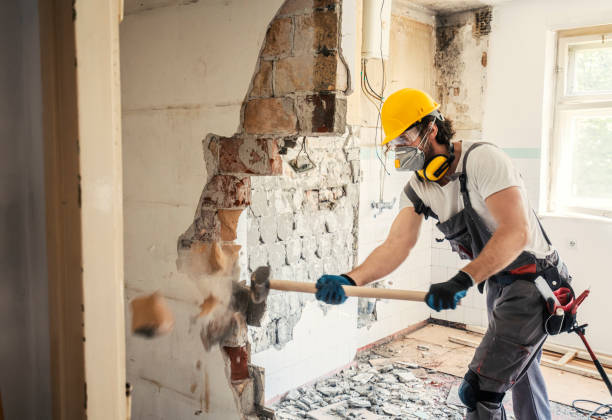Renovating your home is exciting. Whether you’re updating the kitchen, finishing the basement, adding a home office, or putting in a pool, you’re making your space more comfortable and valuable. But here’s something many homeowners overlook: these changes can also affect your homeowners insurance. If you don’t update your policy, you might find yourself underinsured when disaster strikes.
In this guide, we’ll break down how renovations and home additions impact your insurance coverage, what you need to tell your insurer, and how to make sure you stay fully protected.
Why Renovations Matter for Your Homeowners Insurance
When you buy homeowners insurance, your policy is based on the replacement cost of your home — that’s how much it would cost to completely rebuild your house if it was damaged or destroyed.
When you renovate or add to your home, you increase its replacement cost because it now takes more money to rebuild or repair. But if your insurance coverage doesn’t reflect these changes, you’re at risk of being underinsured. That means if your home suffers a loss, your insurance payout might not cover the full cost to rebuild or repair — leaving you to pay the difference out of pocket.

7Renovations and Add-Ons That Typically Affect Your Coverage
Not every change to your home requires a big insurance update, but some renovations definitely do. Here are common projects that impact your homeowners insurance:
1. Kitchen or Bathroom Upgrades
If you install high-end appliances, new cabinetry, granite or quartz countertops, or replace plumbing and fixtures, your home’s value increases. These upgrades can significantly raise the rebuild cost.
2. Room Additions or Conversions
Adding new rooms — like an extra bedroom or sunroom — or converting existing spaces, such as finishing a basement or turning a garage into a living area, means more square footage. More square footage = higher replacement cost.
3. Roof Replacement or Upgrades
Replacing an old roof with a newer, more durable material can sometimes lower your premium, especially if the new roof resists storms or fire better. But it also changes your home’s rebuild value, so your insurer needs to know.
4. Pools, Decks, or Hot Tubs
Adding a pool or hot tub isn’t just about increasing property value; it also raises liability risks. Someone could get injured while using these features, so your insurer might require you to add liability coverage or an umbrella policy.
5. Home Offices or Studios
If you start running a business out of your home or create a dedicated workspace, your personal property coverage might need a boost to cover expensive equipment. In some cases, you may need a rider or endorsement for business-related risks.
How to Keep Your Homeowners Insurance Up to Date with Renovations
Renovating without telling your insurance company can lead to gaps in coverage. Here are the steps to take:
1. Notify Your Insurance Company
Whether you’re just starting a project or have finished it, tell your insurer about the changes. They can reassess your home’s value and adjust your dwelling coverage accordingly. This helps avoid being underinsured if something happens.
2. Review Your Personal Property Coverage
Renovations often mean new furniture, electronics, appliances, or other valuables. These may exceed the limits of your current personal property coverage. Make sure your policy covers these items or consider adding a separate rider for high-value belongings.
3. Add Liability Protection if Needed
Features like pools or home rental units increase liability exposure. You might want to add an umbrella policy for broader liability coverage or increase limits on your existing liability protection.

Can Renovations Actually Lower Your Insurance Premium?
Surprisingly, some home improvements can reduce your insurance costs. Upgrades like installing:
-
New plumbing or electrical systems
-
Security systems or alarms
-
Fire-resistant roofing or siding
can make your home safer and less prone to claims. Always ask your insurer about discounts tied to these improvements.
Why You Shouldn’t Delay Updating Your Policy
Ignoring insurance updates after renovations puts your finances at risk. Here are the key reasons to act promptly:
-
Avoid Underinsurance: Without adjusting your coverage, you might not get enough payout to rebuild after a loss.
-
Prevent Claim Denials: Insurers expect to be informed of significant changes. Failing to notify them could lead to claims being denied.
-
Stay Compliant with Lenders: If you have a mortgage, your lender requires adequate coverage. Renovations increase your home’s value, so your insurance should reflect that.
Additional Tips for Homeowners Remodeling Their Insurance
-
Get Multiple Quotes: Renovations can change your premium. Shop around for the best coverage at a fair price.
-
Document Everything: Keep receipts, contracts, and photos of your renovations. This helps with claims or coverage discussions.
-
Understand Your Policy: Know your coverage limits, deductibles, and exclusions before starting any work.
-
Consider Additional Coverage: For special items like fine art, jewelry, or expensive electronics added during renovations, consider separate endorsements.
Final Thoughts: Renovations Require a Closer Look at Your Insurance
Renovating your home is a fantastic way to improve comfort and increase value. But remember: with bigger and better comes a need for updated insurance coverage. Don’t risk being caught underinsured or paying out-of-pocket for damages because your policy is out of date.
Before you begin or soon after completing your renovations:
-
Review your current insurance policy
-
Contact your insurance company to update your coverage
-
Assess whether your liability limits and personal property coverage need changes
Taking these steps ensures your home—and your wallet—stay protected no matter what life throws your way.





